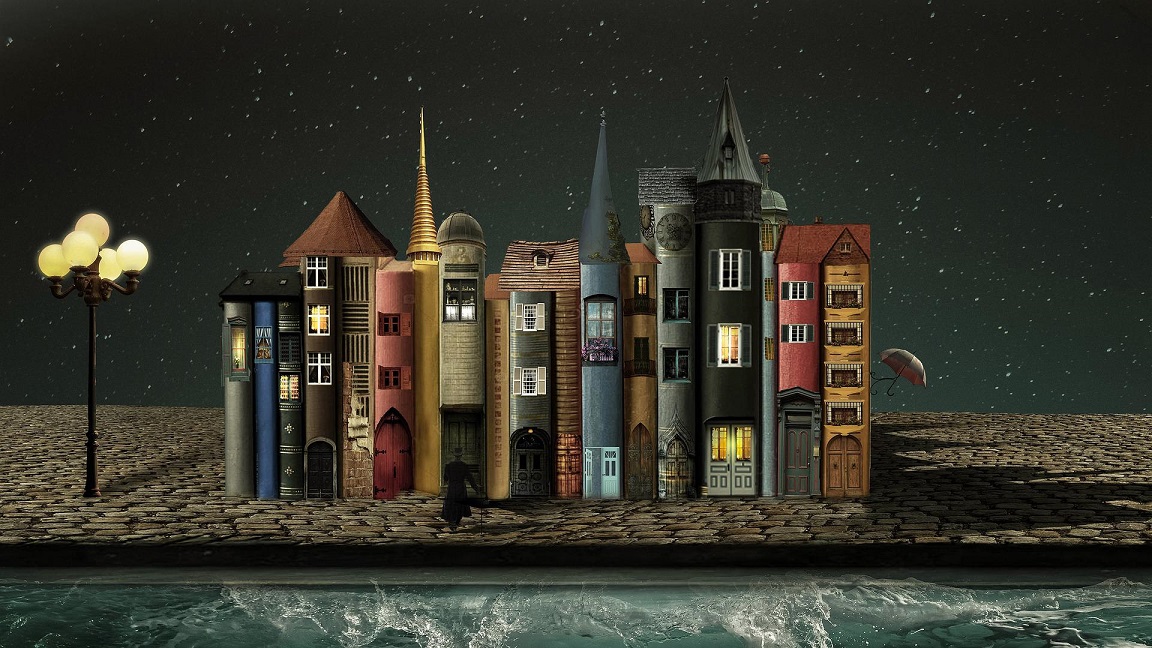Writing, says Lispector, is not knowing what’s coming next. To find out, we throw another word out, as bait: which words will take the bait, if indeed any? Or will nothing follow but a void?
If it’s true that the world started with a yes, wrote Lispector, if it’s true that one molecule said yes to another molecule, and that’s how the world began, then solitude is an absolute. It doesn’t exist simply because each person has their individual name, it exists in spite of our naming: engraved and extinguished on every line of the page, death and resurrection of a writing carved out and then cut down on the body. Clarice Lispector would have loved to have written the type of story that starts “Once upon a time”, but not a children’s story. Again and again, she began with the words: “Once upon a time, there was love…”, “once upon a time, there was error…”, once upon a time, there was passion…”. But it was impossible for her – stories need fire, they need blood, they need sorrow – a sorrow as distant and remote to her as her self.
So she wrote: “Once upon a time, there was a bird. My god”.
In order for one being to exist they must be an ‘other’for other people, it’s the pure confusion of identity, the memory that forgets itself in the face of the splendour of the world. Nobody can give a name to themselves without hiding an absence of faces. Nobody is capable of such abilities.
 The only technique – aii such a deathly expression – is humility: the absolute awareness of the fact that we are totally incapable, and must approach things with absolute discretion, through pure, unsullied eyes.
The only technique – aii such a deathly expression – is humility: the absolute awareness of the fact that we are totally incapable, and must approach things with absolute discretion, through pure, unsullied eyes.
If we approach things with the excessive loudness of names, they’ll run away.
We should approach with gentle ignorance, with fragile temptation of not knowing: open a door, and just look. See the sun as we’ve never seen it before, the three in the afternoon sun. Watch a bird turn into an eagle. Look at pain, without taking precautions or metaphors. Watch how lies turn out. Watch shadows larger than our own. Then – and only then, and not definitely then – can there be writing: by watching, we conserve those images that exist, and others that have never existed. When we write, we remember things that have yet to happen.
Writing, says Lispector, is not knowing what’s coming next.
To find out, we throw another word out, as bait: which words will take the bait, if indeed any? Or will nothing follow but a void?
 Others have written about the exasperating totality of everything, others have described the world with a handful of fleeting sounds. But what’s more revealing, what reveals what: everything, or nothing?
Others have written about the exasperating totality of everything, others have described the world with a handful of fleeting sounds. But what’s more revealing, what reveals what: everything, or nothing?
Innocence is not impossible in the face of totality, but perhaps it’s possible when faced with an empty void. Look innocently, yes, as though that look and that innocence were the very texture of solitude: difficult, patient solitude, that obscures the weightlessness of desire, which knows burning passion, which recognises its own pains, and reddens at the idea that such pain could fade. To write, insists Lispector, is to prolong time, to find time inside time, to turn seconds into particles, millimetres, molecules, to sketch meaty chunks in the centre of metallic time, to remain there, not to run away, not allow the hours to pass without words passing in that same time.
To write in the space in between the piano keys, refusing to find sense in time, with the patience of love and a love of patience.
To want to write with the skin, but have to write with words, in spite of words. To write, is a saying: “Once upon a time, there was your voice, Clarice”.
 *Carlos Skliar (Buenos Aires, 1960). Researcher at the Latin American Faculty for Social Sciences at the National Research Council, Argentina. Skliar has written books of essays, poems and short stories. Amongst his recent works are Voz apenas (Buenos Aires, Ediciones del Dock, 2011), No tienen prisa las palabras (Barcelona, Candaya, 2012) y Hablar con desconocidos (Barcelona, Candaya, 2014).
*Carlos Skliar (Buenos Aires, 1960). Researcher at the Latin American Faculty for Social Sciences at the National Research Council, Argentina. Skliar has written books of essays, poems and short stories. Amongst his recent works are Voz apenas (Buenos Aires, Ediciones del Dock, 2011), No tienen prisa las palabras (Barcelona, Candaya, 2012) y Hablar con desconocidos (Barcelona, Candaya, 2014).
* Taken from Colombian online blog “Con-fabulación”.
(Translated by Claudia Rennie – Email: claudiarennie@gmail.com) – Photos: Pixabay













.jpg)












